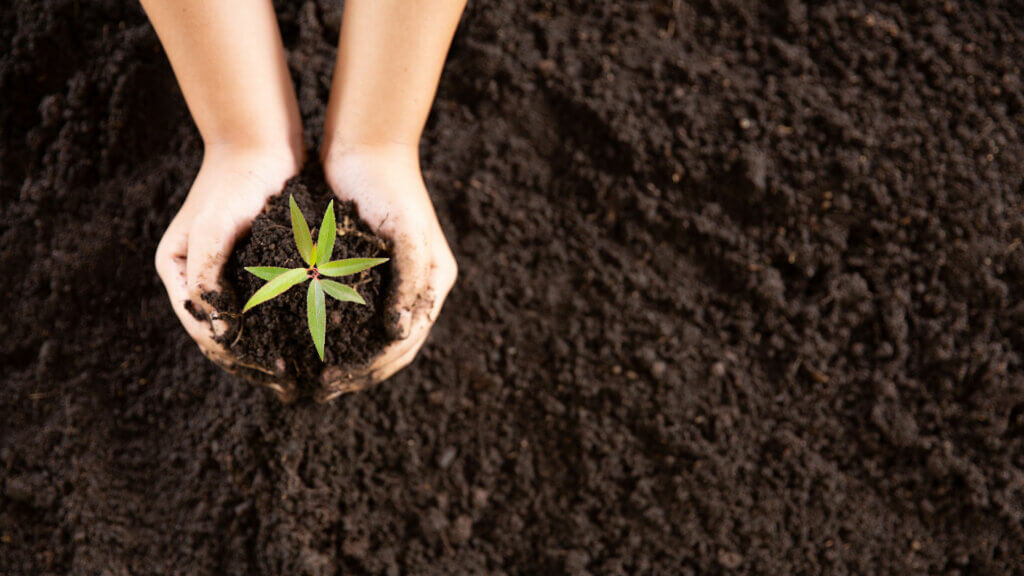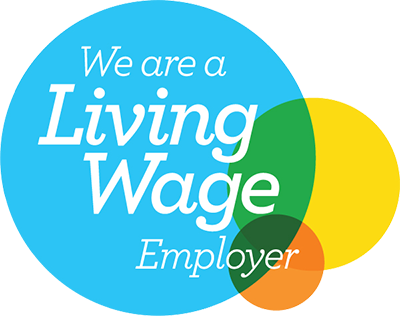
Yesterday we celebrated World Soil Day – an annual day designed to raise awareness about soil’s important role in maintaining healthy ecosystems and human well-being, whilst addressing challenges in soil management and advocating for better soil health and sanitisation.
Read on to find out about some of the biggest problems facing soil, and how a sustainable supply chain can help.
Soil is an invaluable resource. In addition to being the habitat to a diverse range of insects and other organisms, soil is responsible for carrying out a range of functions and services that human life relies on.
From providing a place for plants and food crops to grow through to filtering our water supply and preventing flooding, soil plays an integral role in maintaining a balanced, healthy ecosystem and is the largest terrestrial store of carbon.
The Problems Facing Soil
The theme of World Soil Day 2021 is “halt soil salinisation, boost soil productivity”. Soil salinisation and sodification involve salt in the soil, and are major soil degradation processes that cause a decrease in agricultural productivity, soil biodiversity, soil erosion and water quality.
Although salinisation can be caused by natural processes such as chemical weathering and transport from geological deposits or groundwater, it can also be brought on by human activity through inappropriate irrigation practices and/or poor drainage conditions. This includes the use of salt-rich irrigation water, a frequent practice in dry climates which leads to an accumulation of salt that is unable to be washed away by rainfall.
It’s anticipated that the problems facing soil are only going to get worse with projected temperature increases caused by climate change. As temperatures rise, water and soil salinity is likely to be in parallel, leading to a dramatic increase in the demand for irrigation. Unless something is done, this will have a huge impact on agricultural production – leading to further water and food security issues.
Looking Forwards – Solutions to Salinisation
There are several practices which can help control salinity. These include implementing the infrastructure to improve drainage, minimising irrigation, isolating salts and employing good soil and water management through drip irrigation, scheduling, seedbed placement and more.
Other action includes raising awareness. By drawing attention to the urgent problems facing soil and its important relationship to people and the planet, we can also start to advocate for better soil management and health. This is why annual events such as World Soil Day are so valuable, as they instigate real change and force organisations to take accountability and consider how they can help.
Sustainable Procurement to Minimise Soil Problems
Protecting the earth’s natural resources is an essential part of the journey toward sustainability and achieving the relevant Sustainable Development Goals outlined by the United Nations.
Although natural causes are partially responsible for causing soil issues like erosion and salinisation, human activity is undoubtedly an exacerbating factor which needs to be addressed. Practices such as deforestation and the use of chemical fertilisers for industries such as agriculture all damage soil integrity and quality – transforming previously fertile and productive land into barren wastelands.
It’s never been more important for businesses to make sure that they’re using sustainably sourced commodities that don’t rely on these sorts of practices. This can be achieved through re-evaluating your current supply chain, and by implementing sustainable procurement.
Making the switch to a sustainable supply chain helps you make sure that your business’s commodities are being sourced in a way that don’t compromise the planet, people and wildlife.
In addition to supporting soil through sustainable procurement, this helps you play your part in the fight against climate change, and be compliant with specific SDG’s such as Target 15.5 – “Protect, restore and promote sustainable use of terrestrial ecosystems, sustainably manage forests, combat desertification, and halt and reverse land degradation and halt biodiversity loss”.
A comprehensive list of the Sustainable Development Goals can be found here.
Boosting your Business
Sustainable procurement also has a multitude of advantages from a business perspective. It shows a willingness to be transparent – making you more trustworthy to existing and prospective clients and presents your business as ethically and morally astute.
However, before you can track and implement sustainability you have to be able to measure it. A good way to do this is by using sustainability software that allows your business to monitor, analyse and improve sustainability performance. This is also incredibly useful for SDG reporting purposes, as it enables you to set baselines, report on key metrics and track progress towards key goals.
Get in touch
As discussions around sustainability gather more momentum, there’s never been a better time to reconsider your supply chain. At Gateway Procurement, we help businesses and organisations across the UK to obtain best value through sustainable procurement.
If you want to improve supply chain performance or supply chain sustainability, or need specialist advice on any aspect of effective procurement, our team of experts is here to help.
Get in touch with Gateway Procurement today on 01482645844, or by emailing daniel@gatewayprocurement.co.uk.









